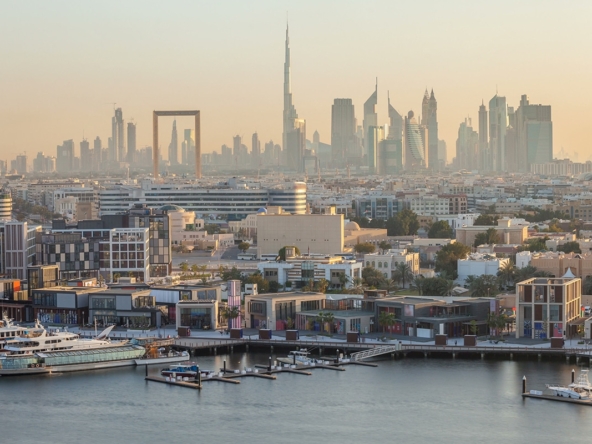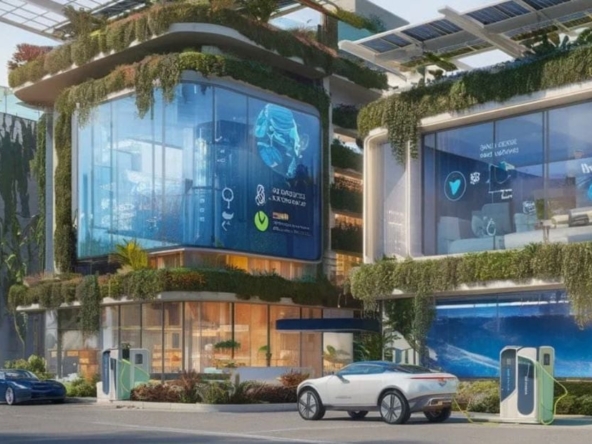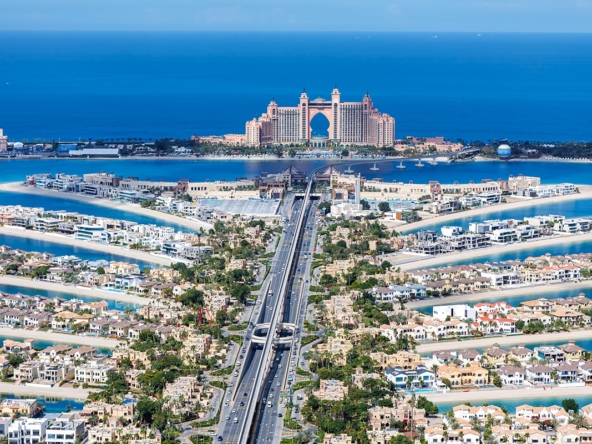The pandemic reshaped the global economic landscape, leaving a lasting impact on industries, supply chains, and consumer behaviour. As the world recovers, Dubai has emerged as a beacon of resilience and opportunity, positioning itself as a global investment hub. The emirate’s strategic location, coupled with its progressive economic policies and world-class infrastructure, has made it an attractive destination for businesses and investors.

Mohamed Nazir, a 38-year-old Singaporean who founded real estate agency Silver Springs in Dubai, is one of these investors. As Singapore’s investor class grows, his insights into the city provide a promising alternative to markets Singaporeans would typically invest in, such as Australia, the UK, China, and Malaysia. AUGUSTMAN speaks with him to find out more.





Property investing can seem daunting because of the high costs and perceived risks. I started with the stock market and learnt some hard lessons when I tried to time the market. That experience led me to explore different asset classes, and I found real estate to be one of the best. It offers several benefits.
Consider gold as a tangible asset. Rental yield generates monthly cash flow. It is possible to time the market for capital gains if the conditions are right. The best advice I can give is to speak to a knowledgeable real estate agent who can provide insights based on data. Explore different projects and always stick to your budget. During economic downturns, overextending yourself can force a sale, a situation you want to avoid. Real estate is a solid way to grow and preserve wealth, and hedge against inflation.
We’d like to hear about your entry into the Dubai market. What led to that?
My entry into the Dubai market was serendipitous. My wife and I were considering a third property investment, but the high Additional Buyer’s Stamp Duty (ABSD) in Singapore made it less attractive to invest locally. While we explored other markets like Australia and the UK, the complex tax structures and high rates ultimately limited the potential gains.
I then came across advertisements for a Dubai property show. Intrigued, I attended and was impressed by Dubai’s tax-free environment, with no income taxes and just four per cent stamp duty, regardless of how many properties you own. The simplicity of this market, combined with its vibrancy, captured my attention.
During a holiday trip to Dubai, we explored the market further and instantly fell in love with the city. Our decision to move to Dubai was motivated by personal and professional reasons: to provide a better environment for our young children and immerse myself in an ever-growing, dynamic real estate market.
Tell us about your work in Silver Springs and the type of properties you represent.
When I founded Silver Springs, I wanted the name to reflect the core values of strength, beauty, and luxury—qualities that resonate with the properties we represent. We specialise primarily in off-plan projects because I’m attracted to their diversity and potential for significant capital appreciation.
We want to expand into the relatively untapped market of South-east Asia. Dubai real estate is well known in the West, but it’s still gaining recognition in the East. It’s fascinating that many Singaporeans choose to invest in the UK, although UK investors rank among the top buyers of Dubai properties.
Why should Singaporeans invest in Dubai properties?

There are a few key principles to consider when investing in real estate. The first step is understanding that the real estate market must align with broader macroeconomic trends. In this regard, Dubai is a prime example. As a regional and global hub, the city is expanding rapidly, with a population of 3.6 million expected to grow to 5.8 million by 2040. In the past two years, Dubai has ranked number one in foreign direct investment (FDI), and this influx of talent and businesses is increasing housing demand. The growth of Dubai’s real estate market is not just speculative; it’s also supported by the city’s overall development.
Secondly, Dubai offers a highly favourable tax environment. There are no taxes—no capital gains tax, no personal income tax, no ABSD, and no Seller’s Stamp Duty. Your only cost is a one-time four percent stamp duty upon purchase. After that, nothing.
Aside from location, location, location, the city is strategically positioned as a global hub, offering world-class connectivity, cutting-edge infrastructure, and a high standard of living. Additionally, it is one of the most visited cities in the world, welcoming 17.15 million visitors in 2023 alone. The combination of a thriving expat community and tourism sector underscores Dubai’s central location as a magnet for residents and travellers, further boosting demand for real estate.
Given the current sociopolitical climate, how do you see the Dubai property market performing?
Despite global uncertainty, Dubai’s property market remains strong, thanks to a robust economy, high levels of foreign direct investment, and continued population growth. The government has implemented policies that make it a regional hub for talent, startups, and innovation, which drives demand for housing. While global economic factors can create temporary fluctuations, its strategic location and ambitious infrastructure development provide a solid foundation for long-term growth.
Investing in Dubai is perceived to be challenging due to language and culture barriers. Do you agree?
One of the greatest advantages of investing in Dubai is that many of the perceived barriers, like language and culture, are minimal. It is incredibly international. English is widely spoken and is the primary language for business and transactions, making it easy for investors from all over the world to navigate the market.
Culturally, Dubai is a melting pot of nationalities and backgrounds, much like Singapore, so the environment is highly inclusive. Whether coming from South-east Asia, Europe, or anywhere else, you will find a welcoming, diverse community. The city’s infrastructure, regulations, and business practices are designed with international investors in mind, ensuring a smooth and straightforward process.
Rather than create barriers, Dubai offers a streamlined entry into the real estate market with its tax-free structure, transparent legal system, and strong regulatory frameworks, making it one of the most investor-friendly cities in the world.
What other advice would you give to budding investors?
There’s an old saying that goes, “The best time to plant a tree was 20 years ago. The second-best time is now.” This applies perfectly to investing. I used to think I missed the crypto boom, or I missed my chance to buy Meta at $80, and I did not invest in Nvidia before the surge. I even thought I missed the post-Covid Dubai real estate boom.
But investing isn’t about timing the market perfectly; it’s about finding the right opportunity that fits your goals and budget and acting on it based on solid information. That’s why I love real estate. Markets will always have a great deal if you know where to look. The key to making informed decisions and committing to them is to do your research.
Sources...




